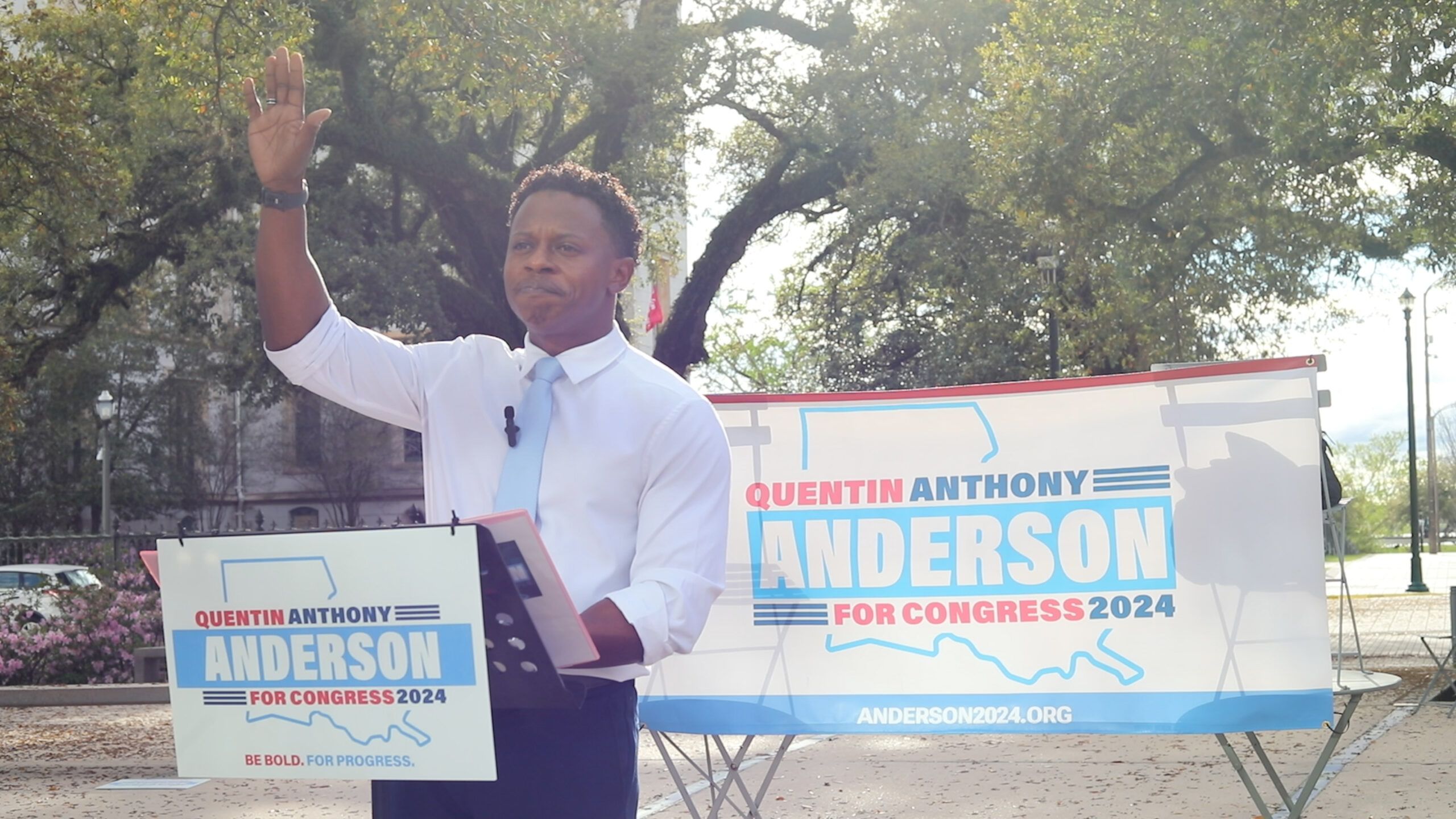Quentin Anthony Anderson Delivers Powerful Remarks at Beacon Light of Baton Rouge
BATON ROUGE, LA — On Sunday, June 30, at Beacon Light of Baton Rouge’s Family & Friends Day service, congressional candidate Quentin Anthony Anderson addressed the congregation with stirring remarks that drew parallels between the Hebrew people’s journey to the Promised Land and the struggles and triumphs of Black Americans. Pastor Eric Williams and First Lady Iris Williams welcomed Anderson to the church, located at 7513 Prescott Road East.
Anderson, currently the executive chair of the Justice Alliance and founding creative director of Anderson Creative, is running for the newly drawn 6th Congressional District. His appearance at Beacon Light was not only a testament to his deep roots in the community but also a powerful reminder of the historical and spiritual foundations that guide his campaign.
A Message Rooted in Faith and History
In his address, Anderson reflected on his heritage and personal journey, connecting it to the broader story of the Black church and its pivotal role in the lives of African Americans. “The Black church is the first place where most of us were ever told that we were special,” he remarked, emphasizing the church’s role in affirming the worth and potential of its members.
Anderson’s speech was rich with personal anecdotes, including a humorous recollection of bringing his non-Black friend Andy to a spirited church service, highlighting the cultural vibrancy and unique worship practices of the Black church. He spoke of his lineage, being the son of Reverend Alexis Anderson and grandson of Reverend Martha Anne Crump, both of whom have made significant contributions to their communities.
Parallels with the Hebrew People
Drawing a powerful parallel, Anderson compared the plight of Black Americans to the journey of the Hebrew people from slavery to the Promised Land. He spoke passionately about the enduring faith of enslaved ancestors, who despite generations of bondage, held onto the belief that tomorrow would be better. “Imagine what kind of faith you have to have when Grandma was a slave, when mama was a slave, when you’re a slave and when your kid is born a slave, and yet you still have faith that tomorrow is going to be better,” he urged the congregation.
The Joshua Generation
Crescendoing into the heart of his message, Anderson identified his own generation as the “Joshua generation,” tasked with leading the community into a new era of promise and opportunity. “God had Moses lead his people to the Promised Land, but he promised that land to the Joshua generation. That generation was the generation that was meant to deliver,” Anderson declared. He positioned himself and his contemporaries as the leaders who must now step up to meet the challenges of the present.
A Call to Action
Anderson’s speech resonated deeply with the congregation as he emphasized the urgency and responsibility of the current generation to take action. “We’re not waiting for Superman,” he said. “The change that we are waiting for is us.” He invoked the legacies of historical figures like Frederick Douglass, Martin Luther King Jr., Ida B. Wells, and Rosa Parks, reminding the audience that these icons were ordinary people who chose to step up in extraordinary ways.
In closing, Anderson made a heartfelt plea for support. “I’m asking for your vote, I’m asking for your support, I’m asking for your prayers,” he said, underscoring his commitment to deliver on the promise of his generation and to serve the people of Louisiana with faith and perseverance.


